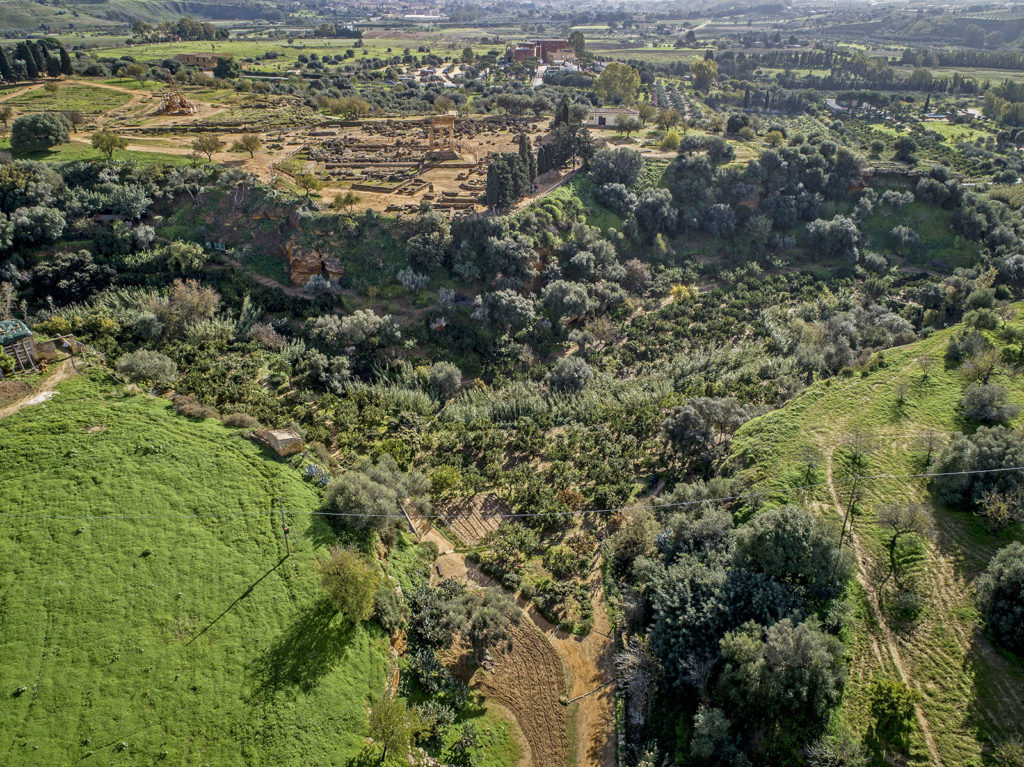More than 2500 years ago, in 580 BC, some
rhodium-Cretan
settlers living in Gela founded Agrigento on the south-western coast of Sicily.
Aristino and Pistilo, the two commanders of the expedition, identified a prosperous and luxuriant site around 3 km from the sea, which was rich in water and fertile soil, and ideal for a new settlement. In that flourishing territory stood a vast
plateau
with a steep rocky ridge, surrounded by two rivers.
 Nature was particularly rich in this place: the mild climate and the flowing waterways made the surrounding land very fertile and suitable for both field cultivation and cattle grazing.
Nature was particularly rich in this place: the mild climate and the flowing waterways made the surrounding land very fertile and suitable for both field cultivation and cattle grazing.
The name of the main river, which flowed east of the plain, was
Akragas
: the word came from the Greek “karkinos”, meaning “crab”, probably because of the numerous crabs that populated its waters. This river was so important to the ancient city that it was revered almost like a deity. Its
tributary
was called Hypsas and ran west of the plain, then merged with the Akragas river before they flowed together into the sea.
The sheer proximity to the sea was another strong point for ancient Agrigento: it was far enough away to avoid its dangers, but close enough to benefit from the trade of subsoil products, which the territory was particularly rich in.